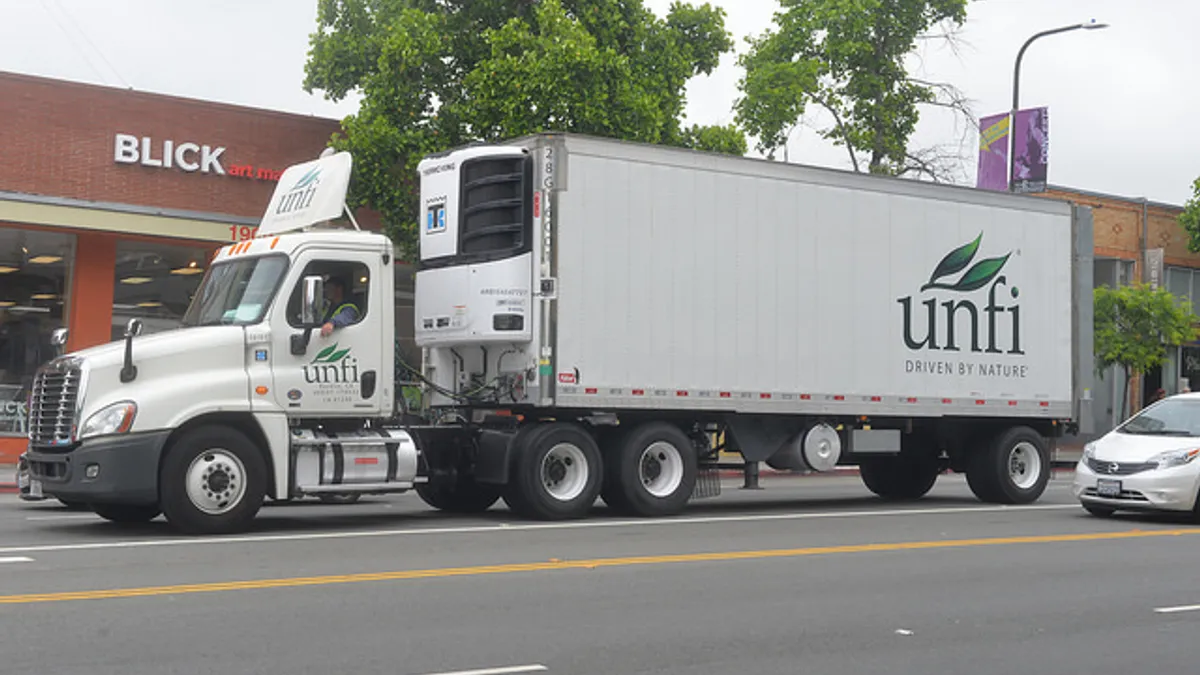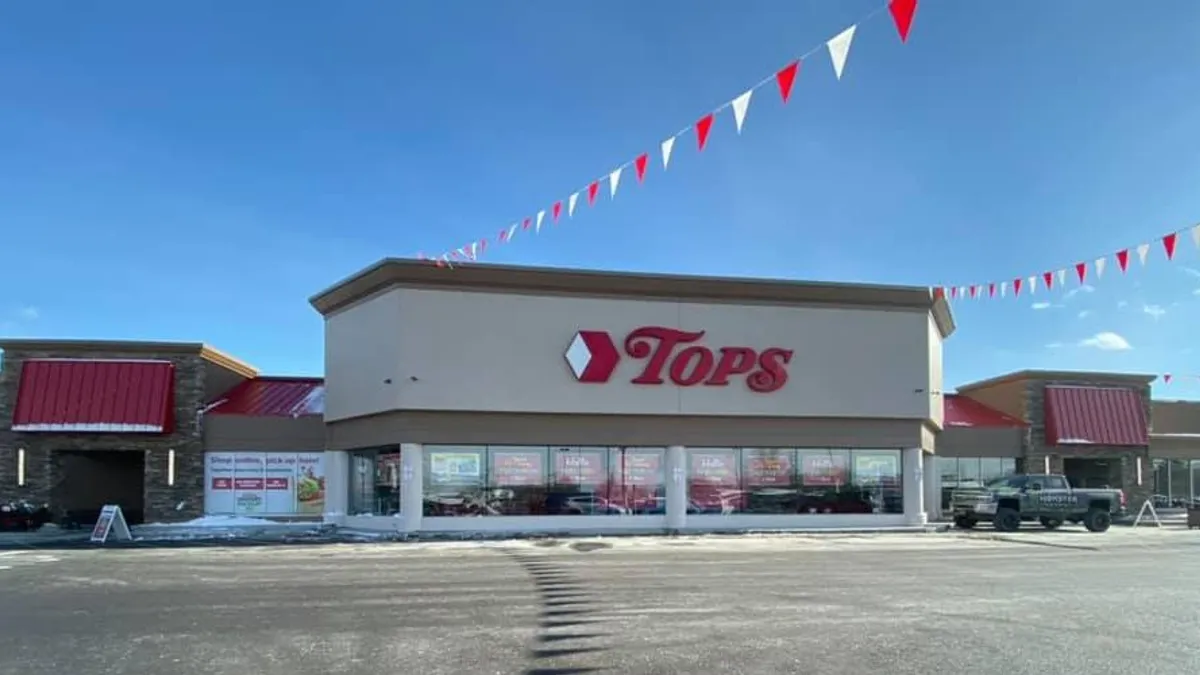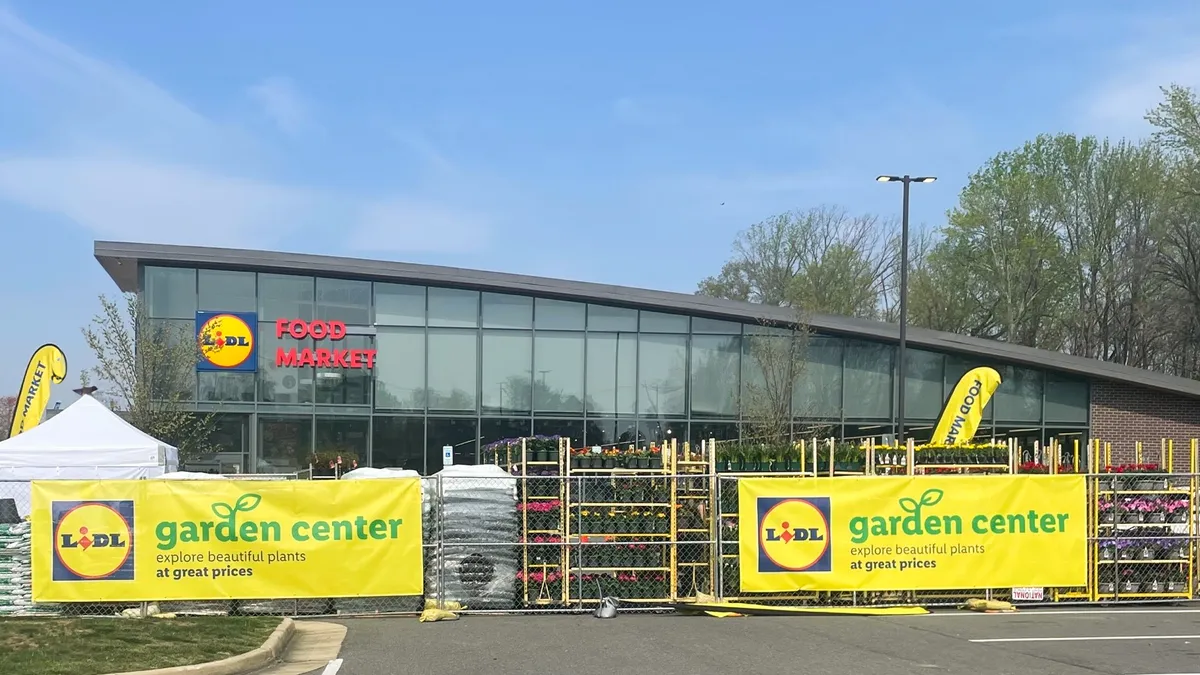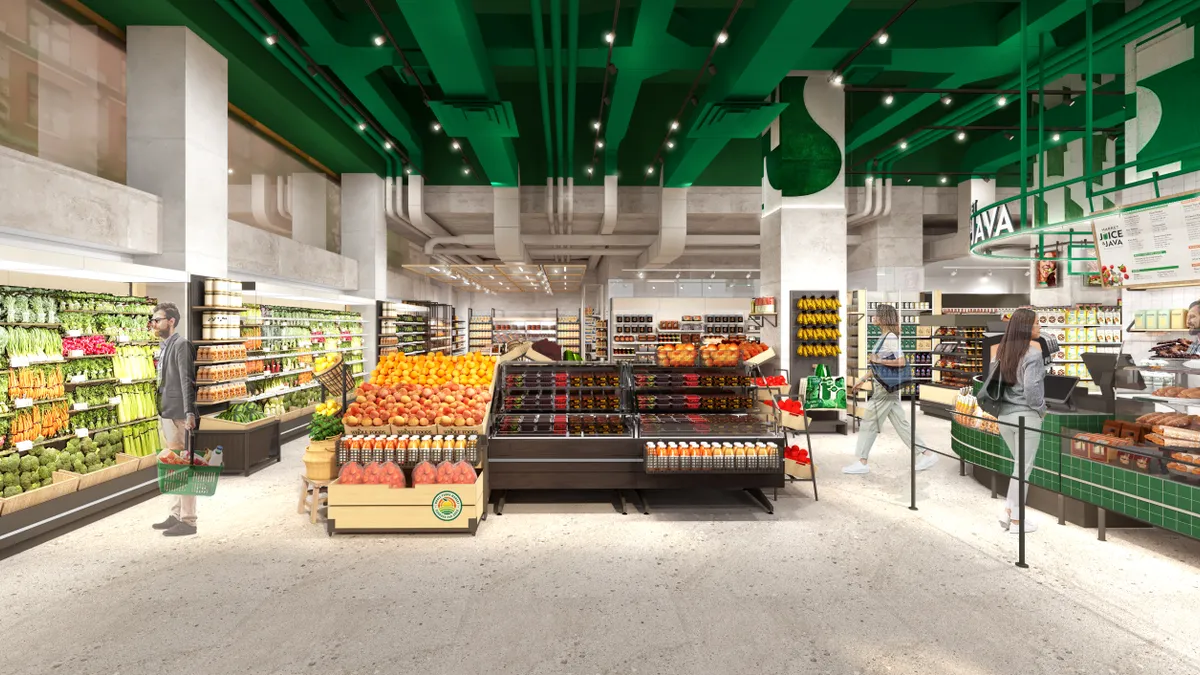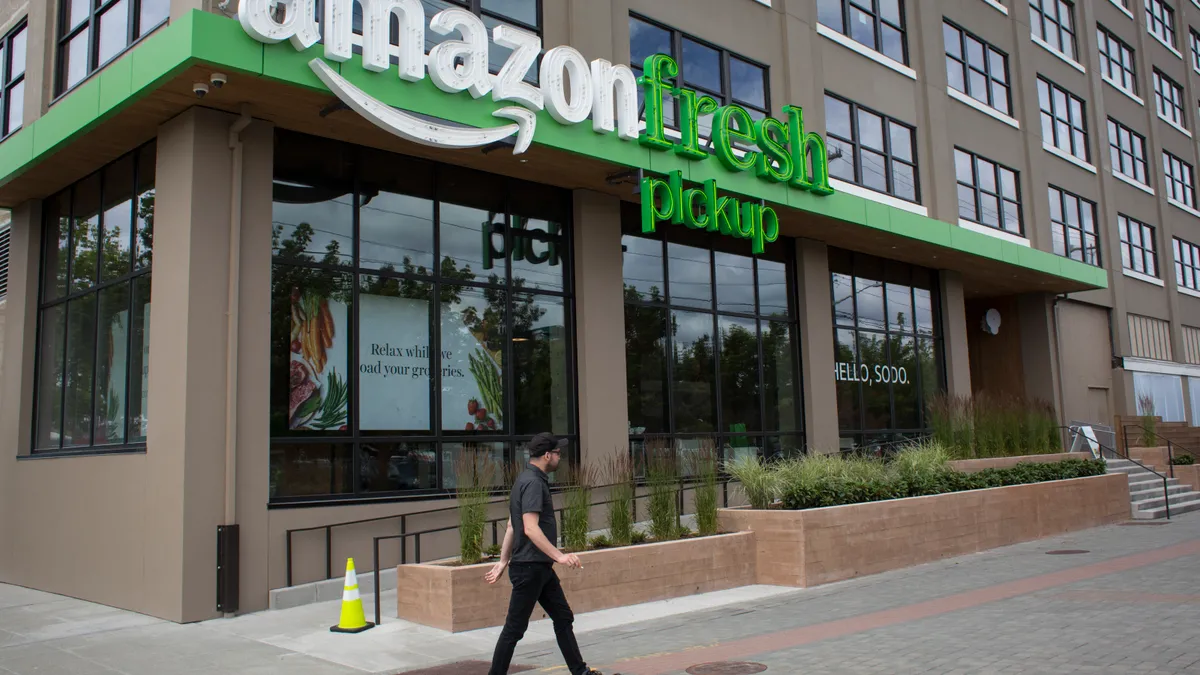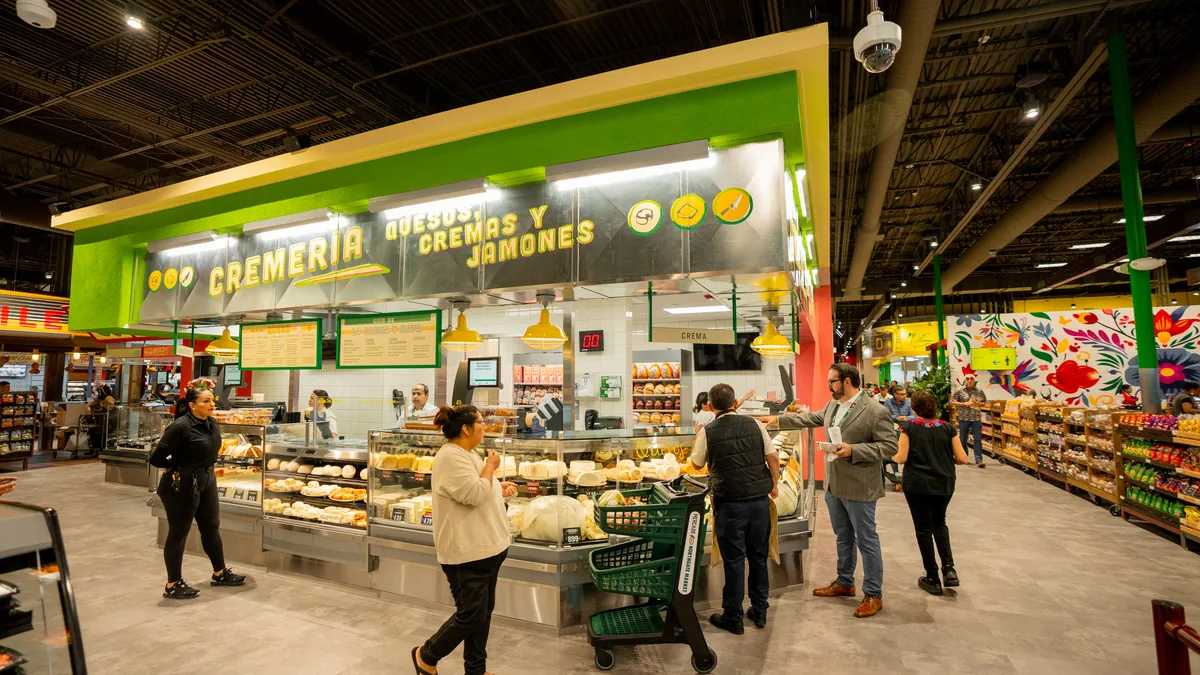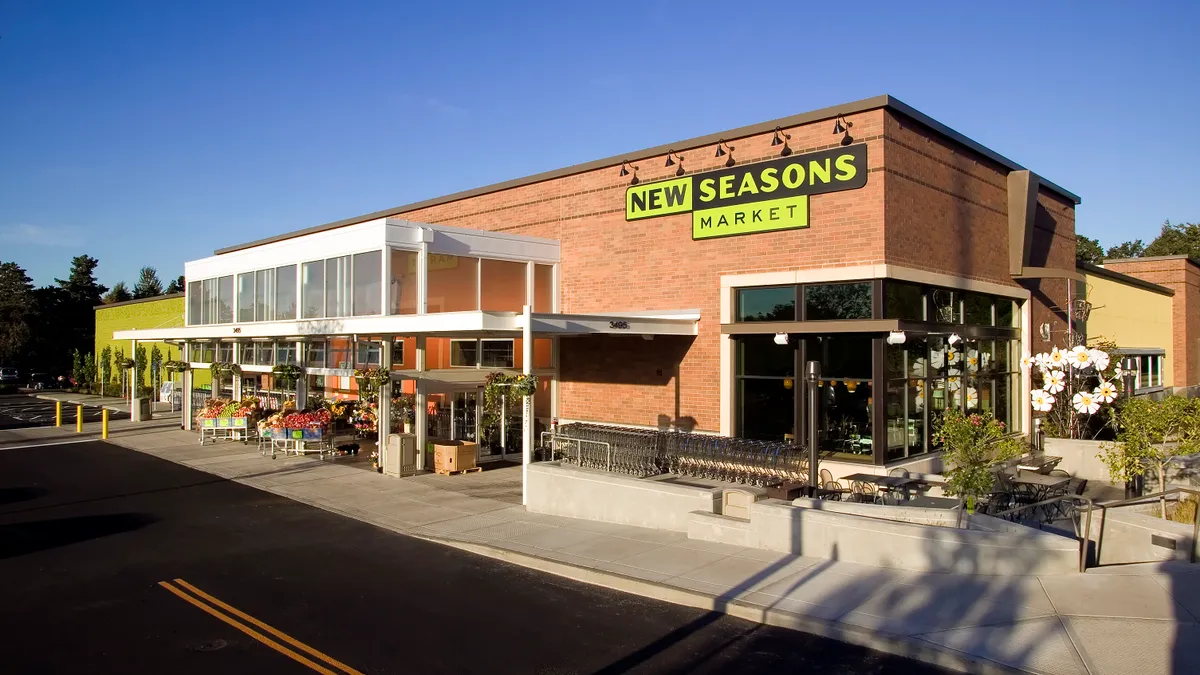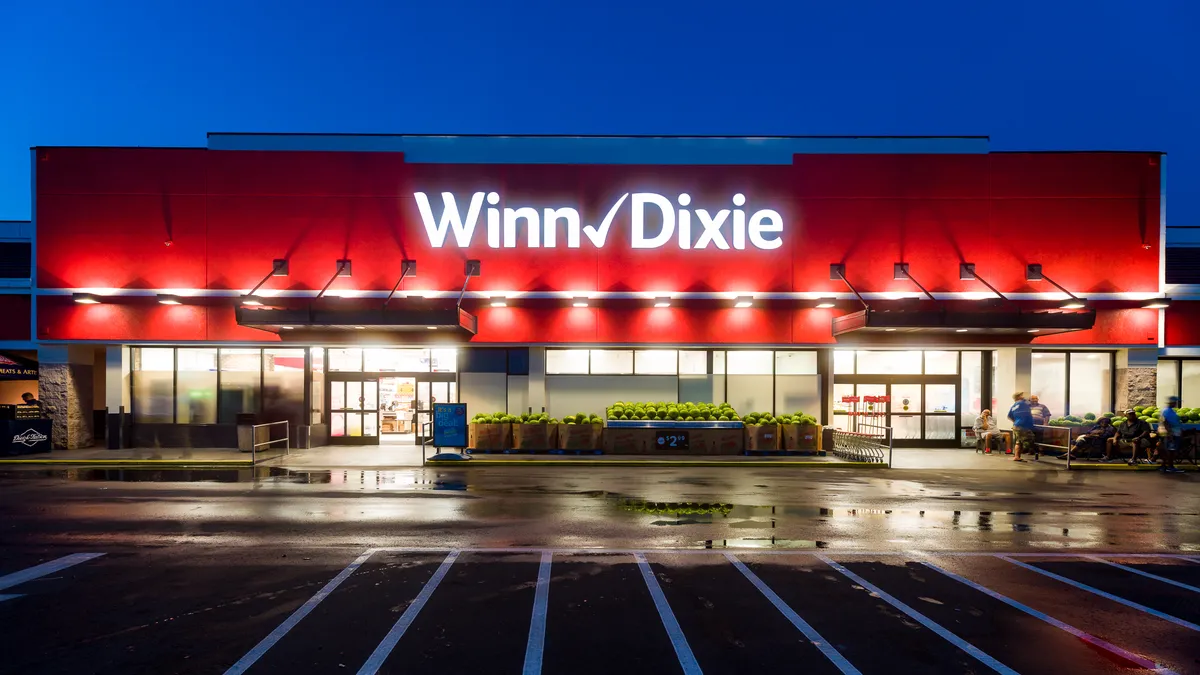It’s not exactly Amazon acquiring Whole Foods, but it’s still pretty big.
With its $2.9 billion surprise acquisition of Supervalu, United Natural Foods, Inc. has created a formidable wholesaling entity — one that will serve up a broad range of offerings to retailers nationwide, from conventional products to fast-growing natural and organic selections.
For UNFI, the move addressed a few key needs — the most pressing being the need to diversify beyond its main customer, Whole Foods. The Amazon-owned grocer accounts for roughly one-third of UNFI’s business and has a supply contract in place that goes until 2025. After that point, experts believe Amazon could switch suppliers or transition to its own fulfillment operations, leaving UNFI high and dry.
Picking up Supervalu gives UNFI access to additional customers. It could also help the wholesaler address supply issues and carve out greater efficiencies across the supply chain. The companies expect more than $175 million in synergies through the deal.
But with its acquisition, UNFI also gains a struggling company that’s gone through a difficult transition from retailing to wholesaling. Analysts told Food Dive that if UNFI is going to realize the deal’s upside, it is going to have to successfully integrate a company that’s still finding its way in the wholesale industry.
Going back to the start
For investors, Supervalu hasn’t exactly lived up to its name, with its share price plummeting more than 70% over the past three years. This decline has prompted calls for change, most notably from Blackwells Capital, a stakeholder that has publicly clashed with Supervalu over strategy and leadership. The activist firm recently nominated a slate of six nominees for election to the company’s board.
In response, Supervalu has sold off most of its retail assets and homed in on its stronger wholesale business. It is, in many ways, a reset for a company that started out more than 100 years ago as a wholesaler.
“We’re bringing Supervalu back to its grassroots,” said Mike Stigers, executive vice president of wholesale for Supervalu, during a presentation at the company’s annual expo in St. Paul, Minnesota this week.
Wholesaling now accounts for 80% of Supervalu’s business, compared to 44% two years ago. The shift has yet to pay dividends, with rising costs and weak sales among its remaining retail stores generating tepid returns. Supervalu’s most recent earnings report, issued Thursday, revealed $4.76 billion in net sales — up from $4 billion during the year-ago period — and earnings down 17 cents per share.
"This combination is what our retailers demand.”

Steve Spinner
chairman and chief executive officer, United Natural Foods Inc.
But Supervalu has remained optimistic as it’s made key acquisitions. In the past year, the company bought West Coast wholesaler Unified Grocers followed by Associate Grocers of Florida, which beefed up its presence in the southeast.
These acquisitions are aimed at accessing key markets and customers, along with building capabilities in high-growth categories. Among the most promising pickups is Market Centre, a specialty food distributor formerly owned by Unified Grocers that has some key contracts with West Coast retailers, including New Seasons, Stater Bros. and Bristol Farms, and should complement UNFI’s specialty business.
Supervalu plans to take Market Centre nationwide, with facilities set to open in Joliet, Illinois, later this week; in Carlisle, Pennsylvania, at the end of next month; and in Ocala, Florida, early next year.
UNFI sees this, as well as Supervalu’s fresh meat and produce distribution arms, as key assets.
“Our industry continues to evolve scale, efficiency, merchandising, services and products selection and are what our customers need and want. This combination is what our retailers demand,” Steve Spinner, UNFI’s chairman and chief executive officer, said yesterday during a conference call.
But integration of these deals is still very much ongoing, said Ajay Jain, senior research analyst with Pivotal Research Group, and that means UNFI has to assume responsibility for those efforts.
“Supervalu has taken on a lot of acquisition activities and UNFI is going to have to do a lot of that integration work,” he told Food Dive in an interview.
A grab bag of brands
Although Supervalu viewed its remaining retail brands — Cub Foods, Hornbacher's and Shoppers Food & Pharmacy — as valuable test labs for its wholesale operations, UNFI clearly doesn't share this viewpoint. Company officials said yesterday they plan to sell off the rest of Supervalu's struggling retail stores “in a thoughtful and economically driven manner,” according to Spinner.
The move will cut loose about one third of Supervalu's total sales but help UNFI fund its acquisition, officials said. It will also make dozens of stores available in high-demand markets. Cub Foods operates 77 stores and is the market share leader in the highly competitive Twin Cities. Possible acquirers include Hy-Vee, Kroger and Albertsons.
UNFI will gain other assets through the deal, including Supervalu's more than 5,000 private label products, which cover a wide range of categories and value points. The top brand is Essential Everyday, with more than 2,700 products across 140 categories, though the star performer of late has been Wild Harvest, the company’s natural and organic brand that launched more than a decade ago. That line currently offers hundreds of products in categories ranging from baby food to household cleaners, and plans to add more than 100 new ones this year, including a personal care line set to launch this October.
“Supervalu has taken on a lot of acquisition activities and UNFI is going to have to do a lot of that integration work.”

Ajay Jain
senior analyst, Pivotal Research Group
Like other natural and organic store brands, including Kroger’s Simple Truth and Albertsons O Organics, Wild Harvest has caught the wave of demand for smartly priced natural products.
“Wild Harvest is just on fire,” said Anne Dament, Supervalu’s executive vice president of retail, marketing and private brands. “People are surprised with how trend-forward it is.”
Supervalu has also increased its footprint in prepared foods and meal kits. This includes its Quick & Easy line of fresh meals, which includes meal kits, heat-and-eat and prepared foods.
Thursday, the company announced a deal to bring HelloFresh meal kits to its 3,300 retail customers. though it’s unclear if that offer will extend to any of UNFI’s customers. Food Dive has reached out to both companies for clarification.
A good deal for both parties?
Supervalu investors earned a 64% premium per share on the deal — a rich payout that was due in large part to the fact that UNFI engaged in a bidding war with C&S Wholesale Grocers, Reuters reported.
“This ended up being very good for Supervalu investors,” said Jain.
But can the same be said for UNFI and its investors? Some say yes, pointing out the need for wholesale companies to combine forces in order to stay ahead on pricing, innovation and market penetration.
“The wholesale food distribution business needs scale now more than ever to counter the pricing and competitive pressure permeating throughout the food retailing business," Mickey Chadha, vice president with investment firm Moody’s, wrote in an email sent to Food Dive.
Others aren’t so sure. Jain, for one, pointed to UNFI’s operational woes, including persistent out-of-stock issues, high inbound freight costs and increasing margin pressure. Adding Supervalu processing and distribution centers could alleviate some of the strain on UNFI’s supply, but rising costs and the hefty debt load UNFI will take on to finance the load could weigh heavily, Jain said.
“This is really an atypical kind of acquisition in terms of scale,” he said. “It’s going to result in a lot of leverage. The sheer scale of integration work is going to be massive.”
Long-term economics aside, the deal promises to make waves across the retail industry. Supervalu's independent retail customers — many of whom have struggled amid industry disruption — could see better prices coming through the combination. The deal also promises to extend the reach of UNFI's specialty products to more retailers, including conventional ones hungry for better margins and new customers.
“I think the next leg of growth in the natural and organic space is this greater access for more people,” said Spinner. “You would think that in this country there would have been greater overlap, but it just shows you how big the opportunity is.”



